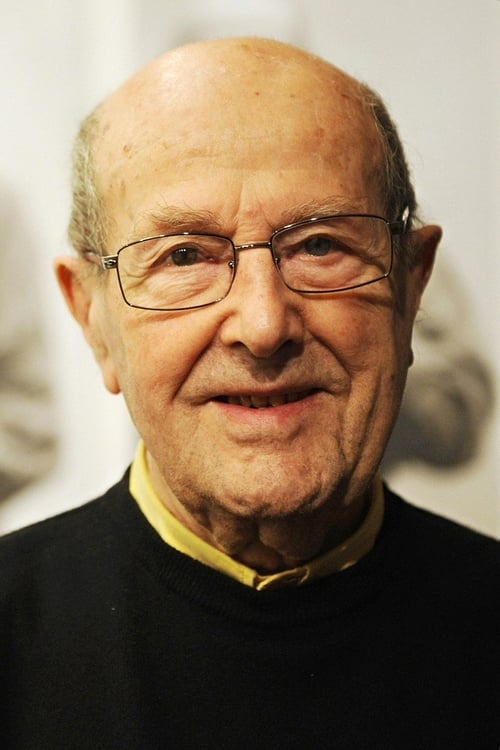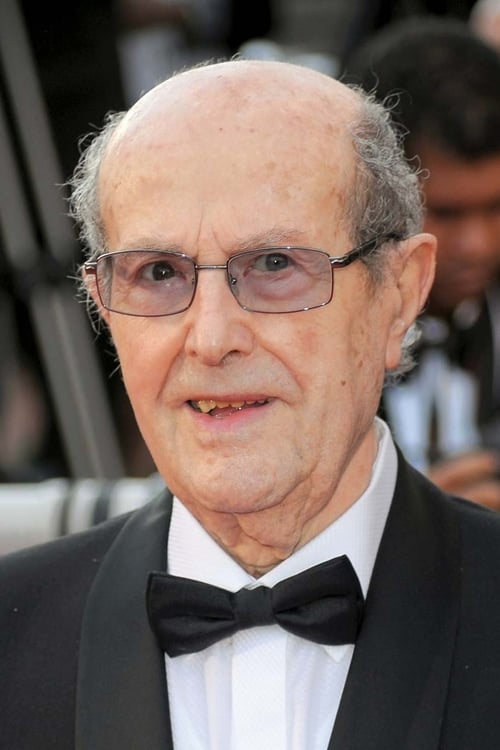
Director of Photography
Manoel de Oliveira's final work revisits one of his earliest films and celebrates a century of industrialization in Portugal.

Director
Manoel de Oliveira's final work revisits one of his earliest films and celebrates a century of industrialization in Portugal.

Editor
A long-hidden, personal doc about leaving a beloved house by the late, revered Portuguese director Manoel de Oliveira.

Screenplay
A long-hidden, personal doc about leaving a beloved house by the late, revered Portuguese director Manoel de Oliveira.

Director
A long-hidden, personal doc about leaving a beloved house by the late, revered Portuguese director Manoel de Oliveira.

Self
A long-hidden, personal doc about leaving a beloved house by the late, revered Portuguese director Manoel de Oliveira.
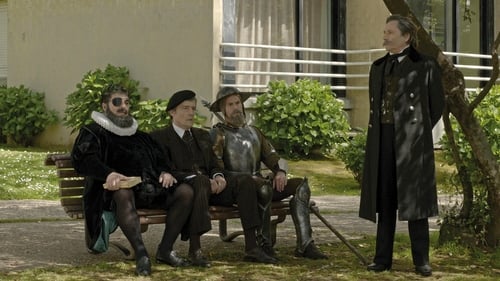
Screenplay
Don Quixote, Luís de Camões, Camilo Castelo Branco and Teixeira de Pascoaes meet in an eternal garden in the middle of a modern city and talk about life.

Director
Don Quixote, Luís de Camões, Camilo Castelo Branco and Teixeira de Pascoaes meet in an eternal garden in the middle of a modern city and talk about life.

Director
Every year the Viennale invites a famous director to produce a short film as the festival trailer. In 2014 the choice has fallen on the 105-year old Manoel de Oliveira.

Director
Thirteen filmmakers talk about Henri Langlois and their relationship with him.

Self
Thirteen filmmakers talk about Henri Langlois and their relationship with him.

Screenplay
Four voices and their visions of Guimarães, cradle city of the Portuguese nation and European Capital of Culture in 2012.

Director
Four voices and their visions of Guimarães, cradle city of the Portuguese nation and European Capital of Culture in 2012.

Director
Фильм-антология, состоящий из нескольких историй на тему невидимости в современном мире.

An exploration of the movie "The strange case of Angelica" and an understanding Manoel de Oliveira's cinema.

Screenplay
A group of tourists arrives to the historical center of Guimarães. The camera goes up over the shoulder of Alfonso Henriques' statue. The first king of Portugal, holding up his sword, demands respect. Nevertheless, from there we see how the group of tourists take over the place and sourround the Conqueror with their cameras.

Director
A group of tourists arrives to the historical center of Guimarães. The camera goes up over the shoulder of Alfonso Henriques' statue. The first king of Portugal, holding up his sword, demands respect. Nevertheless, from there we see how the group of tourists take over the place and sourround the Conqueror with their cameras.

Screenplay
Despite his age and general weariness, Gebo keeps on working as an accountant to provide for his family. He lives with his wife, Doroteia, and his daughter-in-law, Sofia, but it is the absence of João, son and husband, that worries them.Gebo seems to be hiding something, especially to Doroteia, who is anxiously waiting to see her son again. Sofia is also waiting for her husband to come home, and yet she fears him. All of a sudden, João arrives and everything changes.

Director
Despite his age and general weariness, Gebo keeps on working as an accountant to provide for his family. He lives with his wife, Doroteia, and his daughter-in-law, Sofia, but it is the absence of João, son and husband, that worries them.Gebo seems to be hiding something, especially to Doroteia, who is anxiously waiting to see her son again. Sofia is also waiting for her husband to come home, and yet she fears him. All of a sudden, João arrives and everything changes.

Self
Agnès Varda travels around the world to meet friends, artists and filmmakers for an expansive view of the global contemporary art scene.
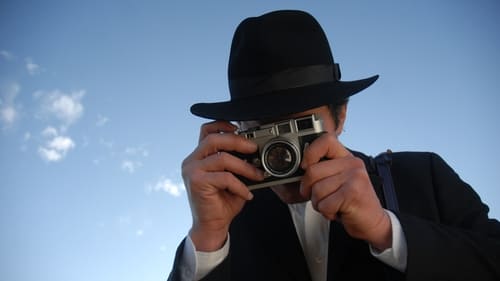
Writer
Однажды ночью молодого фотографа Исаака, постояльца пансиона Донны Розы в Регуа, срочно вызывают в дом богатой семьи, чтобы сделать последний портрет их дочери Анжелики, умершей сразу после свадьбы. Исаак поражен красотой девушки. Когда он собирается сфотографировать Анжелику, молодому человеку кажется, что она возвращается к жизни, и только для него одного. Исаак тут же влюбляется… С тех пор образ Анжелики днем и ночью неотступно преследует его до полного истощения сил…

Director
Однажды ночью молодого фотографа Исаака, постояльца пансиона Донны Розы в Регуа, срочно вызывают в дом богатой семьи, чтобы сделать последний портрет их дочери Анжелики, умершей сразу после свадьбы. Исаак поражен красотой девушки. Когда он собирается сфотографировать Анжелику, молодому человеку кажется, что она возвращается к жизни, и только для него одного. Исаак тут же влюбляется… С тех пор образ Анжелики днем и ночью неотступно преследует его до полного истощения сил…

Writer
The characters from a historical piece of art come to life to discuss poignant themes such as war and world peace.

Director
The characters from a historical piece of art come to life to discuss poignant themes such as war and world peace.

Self
The Midnight Sun Film Festival is held every June in the Finnish village of Sodankylä beyond the arctic circle — where the sun never sets. Founded by Aki and Mika Kaurismäki along with Anssi Mänttäri and Peter von Bagh in 1985, the festival has played host to an international who’s who of directors and each day begins with a two-hour discussion. To mark the festival’s silver anniversary, festival director Peter von Bagh edited together highlights from these dialogues to create an epic four-part choral history of cinema drawn from the anecdotes, insights, and wisdom of his all-star cast: Coppola, Fuller, Forman, Chabrol, Corman, Demy, Kieslowski, Kiarostami, Varda, Oliveira, Erice, Rouch, Gilliam, Jancso — and 64 more. Ranging across innumerable topics (war, censorship, movie stars, formative influences, America, neorealism) these voices, many now passed away, engage in a personal dialogue across the years that’s by turns charming, profound, hilarious and moving.

Editor
Молодой человек, работающий на своего дядю счетоводом, однажды видит в окне напротив прекрасную молодую девушку и тут же влюбляется в нее. Но дядя против женитьбы, и парень в обиде уходит искать другую работу, чтобы найти денег для будущей семьи. Задумывался ли он, какой невестой окажется та красавица в окне напротив?

Screenplay
Молодой человек, работающий на своего дядю счетоводом, однажды видит в окне напротив прекрасную молодую девушку и тут же влюбляется в нее. Но дядя против женитьбы, и парень в обиде уходит искать другую работу, чтобы найти денег для будущей семьи. Задумывался ли он, какой невестой окажется та красавица в окне напротив?

Director
Молодой человек, работающий на своего дядю счетоводом, однажды видит в окне напротив прекрасную молодую девушку и тут же влюбляется в нее. Но дядя против женитьбы, и парень в обиде уходит искать другую работу, чтобы найти денег для будущей семьи. Задумывался ли он, какой невестой окажется та красавица в окне напротив?

Himself
A tribute documentary to Manoel de Oliveira, on occasion of his 100th birthday.
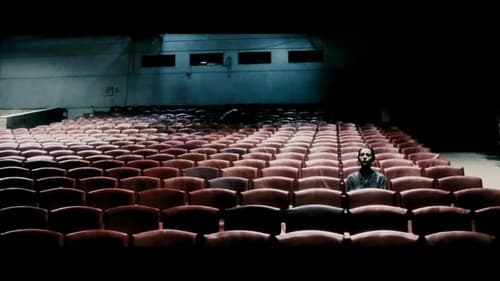
Writer
В него вошли 34 киноновеллы всемирно известных режиссеров из 25 стран и 5 континентов. Каждый попытался создать свое неповторимое кино. Все эти мини-фильмы, продолжительностью 3—4 минуты, в той или иной степени связаны общей темой: кино в современном мире

Director
В него вошли 34 киноновеллы всемирно известных режиссеров из 25 стран и 5 континентов. Каждый попытался создать свое неповторимое кино. Все эти мини-фильмы, продолжительностью 3—4 минуты, в той или иной степени связаны общей темой: кино в современном мире

Himself
Joáo Bénard da Costa, director of the Portuguese National Film Archives [deceased in 2009], interviews the dean of contemporaneous film directors [96-years-old then]. Two humanists of different philosophical backgrounds, both with their long, entire lives dedicated to culture in general (music, painting, literature) and to film in particular, discuss freely, sometimes haltingly, the director's power as a creator or a magician, the philosophy beyond particular scenes in classic movies, film technique, the importance of color, sound and music to films, art versus entertainment, and much more. Their talk takes place in a museum room, seating in front of "The Annunciation" (a 1510 oil painting by João Vaz, a Portuguese artist), which eventually leads to a discussion of 'Leonardo da Vinci', and the relationship between a trend-setter master and his disciples.

Screenplay
A true story of a doctor and his wife who went on a journey in order to prove that discoverer Christopher Columbus was in fact Portuguese. Inspired by the book "Cristóvão Colon Era Português".

Director
A true story of a doctor and his wife who went on a journey in order to prove that discoverer Christopher Columbus was in fact Portuguese. Inspired by the book "Cristóvão Colon Era Português".

Manuel Luciano (2007)
A true story of a doctor and his wife who went on a journey in order to prove that discoverer Christopher Columbus was in fact Portuguese. Inspired by the book "Cristóvão Colon Era Português".

Director
A silent film depicting a meeting between Nikita Khrushchev and Pope John XXIII is screened.

Writer
38 years after the events in the Luis Buñuel classic Belle du jour, Henri Husson thinks he sees Séverine one night at a concert. He follows her and makes her face her past and then takes a slow revenge on her.

Director
38 years after the events in the Luis Buñuel classic Belle du jour, Henri Husson thinks he sees Séverine one night at a concert. He follows her and makes her face her past and then takes a slow revenge on her.

Writer
Film about Calouste Gulbenkian, produced for the celebrations of the 50th anniversary of the Calouste Gulbenkian Foundation.

Director
Film about Calouste Gulbenkian, produced for the celebrations of the 50th anniversary of the Calouste Gulbenkian Foundation.

Himself
A 58 minute documentary about the life of João Bénard da Costa.
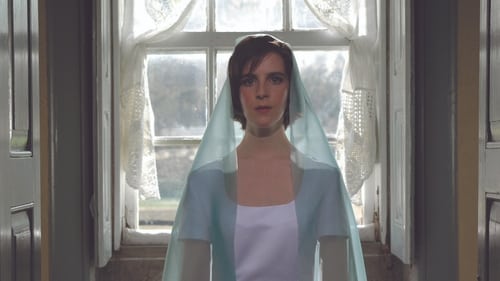
Writer
Luciano, fresh out of jail, was taken by his brother, Flórido, to serve in the home of wealthy Alfreda. He was surprised when she told him that her greatest desire was to see the Virgin Mary. Now comes this rich land owner with her sublime pretensions. Isn't it enough for her to have an Aston Martin and a Jaguar in the garage and ten different dresses per season? It was all professor Heschel's fault. Or someone else's. Anyway, to go beyond the promise is heresy. Alfreda said that she wouldn't rest until she saw the Virgin and made her some questions. Filipe Quinta, the Forger, says he has a solution. Meanwhile, Bahia, her husband, listens do music.

Director
Luciano, fresh out of jail, was taken by his brother, Flórido, to serve in the home of wealthy Alfreda. He was surprised when she told him that her greatest desire was to see the Virgin Mary. Now comes this rich land owner with her sublime pretensions. Isn't it enough for her to have an Aston Martin and a Jaguar in the garage and ten different dresses per season? It was all professor Heschel's fault. Or someone else's. Anyway, to go beyond the promise is heresy. Alfreda said that she wouldn't rest until she saw the Virgin and made her some questions. Filipe Quinta, the Forger, says he has a solution. Meanwhile, Bahia, her husband, listens do music.

A conversation between the filmmaker Manoel de Olivieira and the writer Agustina Bessa-Luís.

Himself (archive footage)
The newsreel series Jornal Português (1938-1951) was produced for the Secretariat of National Propaganda (SPN/SNI) by the "Portuguese Newsreel Society" (SPAC), under the technical supervision of António Lopes Ribeiro. It was conceived and employed as part of the propaganda machinery of Salazar's regime. Screened in cinema theatres prior to the main feature film, each issue of Jornal had approximately ten minutes in length and covered a variety of official government acts, national political news, major sports events and other assorted social and cultural affairs. Jornal Português is not only an indispensable document for the history of Estado Novo's propaganda, but also an unparalleled audiovisual archive of 1940s Portugal.

Art Direction
A satirical short film about technology.

Editor
A satirical short film about technology.

Screenplay
A satirical short film about technology.

Director
A satirical short film about technology.

Screenplay
Manoel de Oliveira directs José Régio's historical epic of religious and political power struggles. King Sebastião plans to make Portugal the world's Fifth Empire.

Director
Manoel de Oliveira directs José Régio's historical epic of religious and political power struggles. King Sebastião plans to make Portugal the world's Fifth Empire.
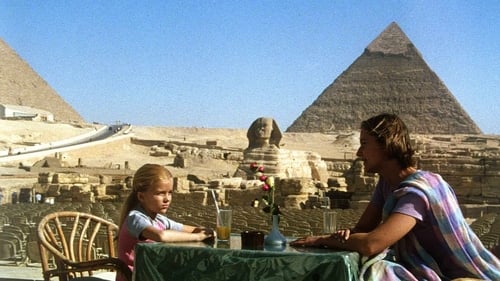
Writer
Друзья отбывают из Лиссабона на круизном корабле, направляющемся к Индийскому океану. Во время однодневных остановок в Марселе, Помпеях, Афинах, Стамбуле и Каире они наблюдают, как профессор рассказывает своей юной дочери о мифах, истории, религии и войнах. Мужчины пытаются флиртовать с ней, но она холодна, поскольку едет в Бомбей к своему мужу.

Director
Друзья отбывают из Лиссабона на круизном корабле, направляющемся к Индийскому океану. Во время однодневных остановок в Марселе, Помпеях, Афинах, Стамбуле и Каире они наблюдают, как профессор рассказывает своей юной дочери о мифах, истории, религии и войнах. Мужчины пытаются флиртовать с ней, но она холодна, поскольку едет в Бомбей к своему мужу.

Self
Life and legacy of Agostinho da Silva. Traversing the biographical journey, the life and work of the Luso-Brazilian philosopher, this work has testimonies from himself and various personalities of Portugal and Brazil that allow us to unravel his personality and multifaceted thought.

Editor
Having lost her place among the social elite, a widow remarries and starts a family.

Screenplay
Having lost her place among the social elite, a widow remarries and starts a family.

Director
Having lost her place among the social elite, a widow remarries and starts a family.
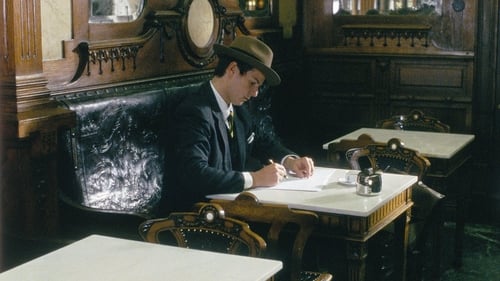
Writer
Manoel de Oliveira's autobiographical documentary about returning to his hometown.

Himself / Narrator / The Thief
Manoel de Oliveira's autobiographical documentary about returning to his hometown.

Director
Manoel de Oliveira's autobiographical documentary about returning to his hometown.
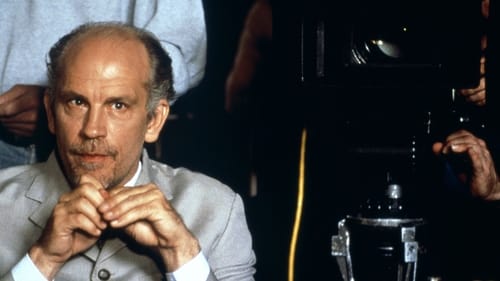
Screenplay
Пожилой парижский актер Гилберт узнает о том, что его жена, дочь и зять погибли в автокатастрофе. Теперь он должен взять под опеку своего маленького внука…

Director
Пожилой парижский актер Гилберт узнает о том, что его жена, дочь и зять погибли в автокатастрофе. Теперь он должен взять под опеку своего маленького внука…

Writer
The story of Father Antonio Vieira, a 17th-century Portuguese priest who lived in Brazil and worked for better treatment of the Indians and to abolish slavery.

Director
The story of Father Antonio Vieira, a 17th-century Portuguese priest who lived in Brazil and worked for better treatment of the Indians and to abolish slavery.

Screenplay
A well-bred, lovely, spiritual, sad young woman marries an attentive physician who loves her. She feels affection but no love. Soon after, without design, she falls in love with Pedro Abrunhosa, a poet and performance artist. He also loves her. She keeps her distance from him, confessing her love to a friend who is a nun and, later, to her husband. Hunger for her love and jealousy consume him; she attends him as he wastes away. With his death, she can marry and express her passion, but what she does and how she explains herself, particularly to her cloistered friend, is at the heart of the film. Glimpses of convent life and of Abrunhosa on stage give contrast and mute comment.

Director
A well-bred, lovely, spiritual, sad young woman marries an attentive physician who loves her. She feels affection but no love. Soon after, without design, she falls in love with Pedro Abrunhosa, a poet and performance artist. He also loves her. She keeps her distance from him, confessing her love to a friend who is a nun and, later, to her husband. Hunger for her love and jealousy consume him; she attends him as he wastes away. With his death, she can marry and express her passion, but what she does and how she explains herself, particularly to her cloistered friend, is at the heart of the film. Glimpses of convent life and of Abrunhosa on stage give contrast and mute comment.

Tango Dancer
An anthology film drama featuring a poetic mirror structure based on existential identity. In "The Immortals," adapted from a Helder Prista Monteiro play, two famous doctors, an 80-year-old father, and his 60-year-old son, contemplate senility and death. "Suzy," from an Antonio Patricio story, is set in the '30s when a young courtesan dies on the operating table. "Mother of the River" is from an Agustina Bessa-Luis fable about eternal life.

Screenplay
An anthology film drama featuring a poetic mirror structure based on existential identity. In "The Immortals," adapted from a Helder Prista Monteiro play, two famous doctors, an 80-year-old father, and his 60-year-old son, contemplate senility and death. "Suzy," from an Antonio Patricio story, is set in the '30s when a young courtesan dies on the operating table. "Mother of the River" is from an Agustina Bessa-Luis fable about eternal life.

Director
An anthology film drama featuring a poetic mirror structure based on existential identity. In "The Immortals," adapted from a Helder Prista Monteiro play, two famous doctors, an 80-year-old father, and his 60-year-old son, contemplate senility and death. "Suzy," from an Antonio Patricio story, is set in the '30s when a young courtesan dies on the operating table. "Mother of the River" is from an Agustina Bessa-Luis fable about eternal life.
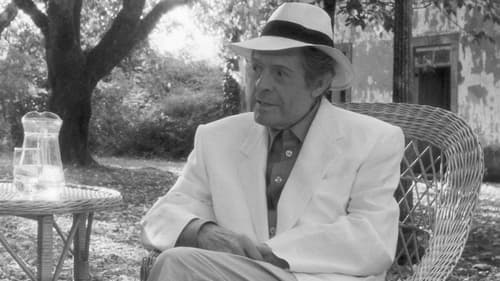
Self
In 1996, Marcello Mastroianni talks about life as an actor. It's an anecdotal and philosophical memoir, moving from topic to topic, fully conscious of a man "of a certain age" looking back. He tells stories about Fellini and De Sica's direction, of using irony in performances, of constantly working (an actor tries to find himself in characters). He's diffident about prizes, celebrates Rome and Paris, salutes Naples and its people. He answers the question, why make bad films; recalls his father and grandfather, carpenters, his mother, deaf in her old age, and his brother, a film editor; he's modest about his looks. In repose, time's swift passage holds Mastroianni inward gaze.
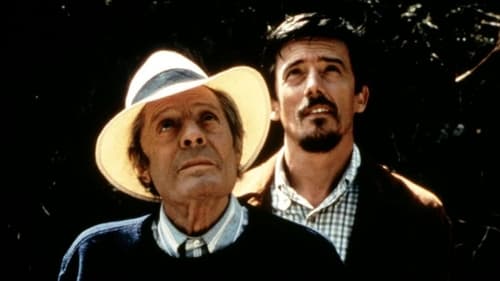
Writer
Биографическая драма стареющего кинорежиссера Мануэля де Оливейры, который вместе с тремя актерами путешествует по Португалии и вспоминает свою юность. Португалия — это одновременно и конец, и начало Европы, но герои приходят именно к концу, который угрожает вымирающей деревне. Это родина французского актера Альфонсо. «Путешествие к началу мира» — это одновременно вояж к прошлому, настоящему и будущему, которые отражаются друг в друге. В конце повествования становится ясно, что режиссер и актеры готовятся к съемкам фильма, но это только верхний слой фильма-притчи.

Driver
Биографическая драма стареющего кинорежиссера Мануэля де Оливейры, который вместе с тремя актерами путешествует по Португалии и вспоминает свою юность. Португалия — это одновременно и конец, и начало Европы, но герои приходят именно к концу, который угрожает вымирающей деревне. Это родина французского актера Альфонсо. «Путешествие к началу мира» — это одновременно вояж к прошлому, настоящему и будущему, которые отражаются друг в друге. В конце повествования становится ясно, что режиссер и актеры готовятся к съемкам фильма, но это только верхний слой фильма-притчи.

Director
Биографическая драма стареющего кинорежиссера Мануэля де Оливейры, который вместе с тремя актерами путешествует по Португалии и вспоминает свою юность. Португалия — это одновременно и конец, и начало Европы, но герои приходят именно к концу, который угрожает вымирающей деревне. Это родина французского актера Альфонсо. «Путешествие к началу мира» — это одновременно вояж к прошлому, настоящему и будущему, которые отражаются друг в друге. В конце повествования становится ясно, что режиссер и актеры готовятся к съемкам фильма, но это только верхний слой фильма-притчи.

Screenplay
Рохерио, богатый молодой человек, и его загадочная жена Леонор устраивают вечеринку в саду свой роскошной виллы на острове Сан-Мигел. Среди приглашенных есть одна весьма занятная пара постарше: философски настроенная и наблюдательная Ирен и престарелый распутник Мишель. Пары «меняются партнерами», словно в танце: Рохерио беседует с Ирен, в то время, как Леонор идет к морю с Мишелем. Если разговор с Ирен расстраивает Рохерио, то беседа с Мишелем всецело захватывает воображение Леонор. Проходит пять лет. На той же вилле накрыт стол на четырех. Мишель и Леонор снова покидают своих спутников. Куда приведут их трудно различимые «подводные течения»?

Director
Рохерио, богатый молодой человек, и его загадочная жена Леонор устраивают вечеринку в саду свой роскошной виллы на острове Сан-Мигел. Среди приглашенных есть одна весьма занятная пара постарше: философски настроенная и наблюдательная Ирен и престарелый распутник Мишель. Пары «меняются партнерами», словно в танце: Рохерио беседует с Ирен, в то время, как Леонор идет к морю с Мишелем. Если разговор с Ирен расстраивает Рохерио, то беседа с Мишелем всецело захватывает воображение Леонор. Проходит пять лет. На той же вилле накрыт стол на четырех. Мишель и Леонор снова покидают своих спутников. Куда приведут их трудно различимые «подводные течения»?

"Enjoying an old port wine together, I was talking with Manoël about the bridges of Douro, and immediately we were of the same opinion: of all these bridges, the great work of art in the capital of modern architecture is the bridge that Gustave Eiffel had done before building his tower of Paris. In less than five minutes, the project was constructed: Manoël was writing a poem that we will film with our friends Bernard, Jérôme, and François. And our dreams of childhood were made in less than a week by going back and forth to the banks of Douro, on foot, then by car, then in a helicopter, back to where we were following these marvelous clouds, with Manoël and me screaming stanzas of a poem inspired by the wind, the water, and friendship." - Jean Rouch

Screenplay
"Enjoying an old port wine together, I was talking with Manoël about the bridges of Douro, and immediately we were of the same opinion: of all these bridges, the great work of art in the capital of modern architecture is the bridge that Gustave Eiffel had done before building his tower of Paris. In less than five minutes, the project was constructed: Manoël was writing a poem that we will film with our friends Bernard, Jérôme, and François. And our dreams of childhood were made in less than a week by going back and forth to the banks of Douro, on foot, then by car, then in a helicopter, back to where we were following these marvelous clouds, with Manoël and me screaming stanzas of a poem inspired by the wind, the water, and friendship." - Jean Rouch

Director
"Enjoying an old port wine together, I was talking with Manoël about the bridges of Douro, and immediately we were of the same opinion: of all these bridges, the great work of art in the capital of modern architecture is the bridge that Gustave Eiffel had done before building his tower of Paris. In less than five minutes, the project was constructed: Manoël was writing a poem that we will film with our friends Bernard, Jérôme, and François. And our dreams of childhood were made in less than a week by going back and forth to the banks of Douro, on foot, then by car, then in a helicopter, back to where we were following these marvelous clouds, with Manoël and me screaming stanzas of a poem inspired by the wind, the water, and friendship." - Jean Rouch
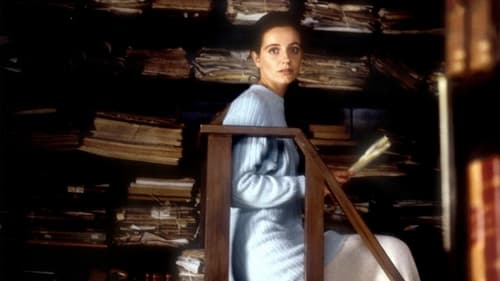
Editor
Майкл, американский профессор, приезжает со своей прекрасной женой-француженкой Элен в португальский монастырь в поисках доказательств того, что Шекспир был на самом деле испанским евреем. Глава монастыря, мрачный Балтар, одержимо влюбляется в Элен.

Writer
Майкл, американский профессор, приезжает со своей прекрасной женой-француженкой Элен в португальский монастырь в поисках доказательств того, что Шекспир был на самом деле испанским евреем. Глава монастыря, мрачный Балтар, одержимо влюбляется в Элен.

Director
Майкл, американский профессор, приезжает со своей прекрасной женой-француженкой Элен в португальский монастырь в поисках доказательств того, что Шекспир был на самом деле испанским евреем. Глава монастыря, мрачный Балтар, одержимо влюбляется в Элен.
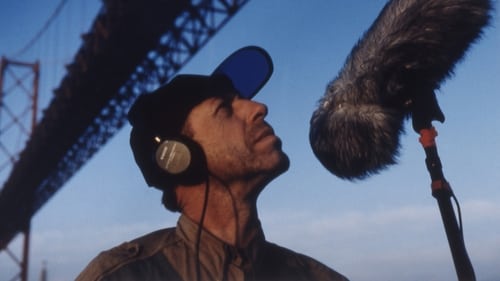
Himself
Режиссер Фридрих Монро решил снять в Лиссабоне фильм таким образом, как будто не было развития кино. Один на городских улицах, с допотопной камерой, он вдруг понимает, что ему все же не обойтись без своего друга звукооператора, и вот герой шлет ему телеграмму с просьбой срочно приехать…

Editor
A blind beggar is robbed of his chest of money. The theft leads to a dramatic situation in the street where he begs every day.

Writer
A blind beggar is robbed of his chest of money. The theft leads to a dramatic situation in the street where he begs every day.

Adaptation
A blind beggar is robbed of his chest of money. The theft leads to a dramatic situation in the street where he begs every day.

Director
A blind beggar is robbed of his chest of money. The theft leads to a dramatic situation in the street where he begs every day.

Paulo Rocha catches up with his “beloved subject” in Porto, where he made Douro, Faina Fluvial in 1929, and where today Oliveira reminisces about the figure of his father, his first experience of cinema as an actor, his past as a racing driver, his first technical experiences…
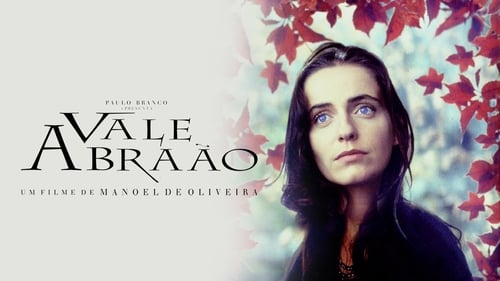
Editor
Ema is a very attractive but innocent girl, so pretty that cars crash in her presence. Young marries Dr. Carlos Paiva, a father's friend, to whom she is not attracted. They move to the Valley of Abraham. Carlos loves her, but decides to sleep in a separate room to avoid waking Ema when he has to return late at night. With time she begins to feel unhappy about her marriage, so she finds a lover.

Screenplay
Ema is a very attractive but innocent girl, so pretty that cars crash in her presence. Young marries Dr. Carlos Paiva, a father's friend, to whom she is not attracted. They move to the Valley of Abraham. Carlos loves her, but decides to sleep in a separate room to avoid waking Ema when he has to return late at night. With time she begins to feel unhappy about her marriage, so she finds a lover.

Director
Ema is a very attractive but innocent girl, so pretty that cars crash in her presence. Young marries Dr. Carlos Paiva, a father's friend, to whom she is not attracted. They move to the Valley of Abraham. Carlos loves her, but decides to sleep in a separate room to avoid waking Ema when he has to return late at night. With time she begins to feel unhappy about her marriage, so she finds a lover.

Editor
Portrait of the last days of the life of Portuguese writer Camilo Castelo Branco.

Screenplay
Portrait of the last days of the life of Portuguese writer Camilo Castelo Branco.

Director
Portrait of the last days of the life of Portuguese writer Camilo Castelo Branco.
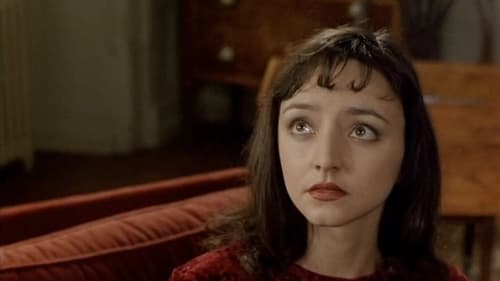
"Все действие происходит в весьма условном сумасшедшем доме в Португалии: особняк в парке, отсутствие мед. персонала, респектабельная одежда обитателей - все это делает их похожими на посетителей светского приема, и ничто в очищенном от быта пространстве не отвлекает от отвлеченных разговоров, из которых фильм и состоит. Все обитатели страдают от религиозных галлюцинаций того или иного рода - даже циник, который вообще отрицает ценность любой религии. Одна пара разыгрывает историю Адама и Евы в Саду, а затем женщина, которая изображала Еву, разыгрывает из себя Св. Терезу де Авила. Другая пара воображает себя персонажами романа Достоевского, а один мужчина заявляет, что в его распоряжении - пятое Евангелие. И у каждого есть своя точка зрения, которую он не смущается высказывать, защищая ее в дебатах с большой искренностью."

Director
"Все действие происходит в весьма условном сумасшедшем доме в Португалии: особняк в парке, отсутствие мед. персонала, респектабельная одежда обитателей - все это делает их похожими на посетителей светского приема, и ничто в очищенном от быта пространстве не отвлекает от отвлеченных разговоров, из которых фильм и состоит. Все обитатели страдают от религиозных галлюцинаций того или иного рода - даже циник, который вообще отрицает ценность любой религии. Одна пара разыгрывает историю Адама и Евы в Саду, а затем женщина, которая изображала Еву, разыгрывает из себя Св. Терезу де Авила. Другая пара воображает себя персонажами романа Достоевского, а один мужчина заявляет, что в его распоряжении - пятое Евангелие. И у каждого есть своя точка зрения, которую он не смущается высказывать, защищая ее в дебатах с большой искренностью."

Editor
"Все действие происходит в весьма условном сумасшедшем доме в Португалии: особняк в парке, отсутствие мед. персонала, респектабельная одежда обитателей - все это делает их похожими на посетителей светского приема, и ничто в очищенном от быта пространстве не отвлекает от отвлеченных разговоров, из которых фильм и состоит. Все обитатели страдают от религиозных галлюцинаций того или иного рода - даже циник, который вообще отрицает ценность любой религии. Одна пара разыгрывает историю Адама и Евы в Саду, а затем женщина, которая изображала Еву, разыгрывает из себя Св. Терезу де Авила. Другая пара воображает себя персонажами романа Достоевского, а один мужчина заявляет, что в его распоряжении - пятое Евангелие. И у каждого есть своя точка зрения, которую он не смущается высказывать, защищая ее в дебатах с большой искренностью."

Screenplay
"Все действие происходит в весьма условном сумасшедшем доме в Португалии: особняк в парке, отсутствие мед. персонала, респектабельная одежда обитателей - все это делает их похожими на посетителей светского приема, и ничто в очищенном от быта пространстве не отвлекает от отвлеченных разговоров, из которых фильм и состоит. Все обитатели страдают от религиозных галлюцинаций того или иного рода - даже циник, который вообще отрицает ценность любой религии. Одна пара разыгрывает историю Адама и Евы в Саду, а затем женщина, которая изображала Еву, разыгрывает из себя Св. Терезу де Авила. Другая пара воображает себя персонажами романа Достоевского, а один мужчина заявляет, что в его распоряжении - пятое Евангелие. И у каждого есть своя точка зрения, которую он не смущается высказывать, защищая ее в дебатах с большой искренностью."

Writer
"Все действие происходит в весьма условном сумасшедшем доме в Португалии: особняк в парке, отсутствие мед. персонала, респектабельная одежда обитателей - все это делает их похожими на посетителей светского приема, и ничто в очищенном от быта пространстве не отвлекает от отвлеченных разговоров, из которых фильм и состоит. Все обитатели страдают от религиозных галлюцинаций того или иного рода - даже циник, который вообще отрицает ценность любой религии. Одна пара разыгрывает историю Адама и Евы в Саду, а затем женщина, которая изображала Еву, разыгрывает из себя Св. Терезу де Авила. Другая пара воображает себя персонажами романа Достоевского, а один мужчина заявляет, что в его распоряжении - пятое Евангелие. И у каждого есть своя точка зрения, которую он не смущается высказывать, защищая ее в дебатах с большой искренностью."
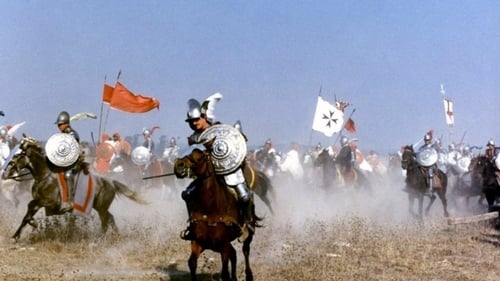
Screenplay
Episodes from entire military history of Portugal are told through flashbacks as a professorish soldier recounts them while marching through a Portuguese African colony in 1973.

Editor
Episodes from entire military history of Portugal are told through flashbacks as a professorish soldier recounts them while marching through a Portuguese African colony in 1973.

Narrator
Episodes from entire military history of Portugal are told through flashbacks as a professorish soldier recounts them while marching through a Portuguese African colony in 1973.

Director
Episodes from entire military history of Portugal are told through flashbacks as a professorish soldier recounts them while marching through a Portuguese African colony in 1973.

Director
An artistic and poetic documentary about the meaning of the Portuguese flag.
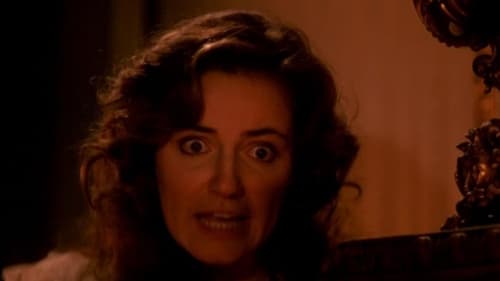
Editor
This odd film is a major representative of an even odder film genre: direct-to-celluloid opera. It was commissioned by the Portuguese master of style, director Manoel de Oliveira from composer João Paes. Musically, it ranges from 19th-century romanticism to popular, modernist and even "post-modernist" styles. In the initially tame story, a host-narrator tells the story of a wedding between the two lovebirds: Viscount d'Aveleda and the beautiful Marguerite. However, what happens in the bridal chamber is incredibly bizarre. The events after that are even stranger (the film out-does even Luis Buñuel in that department), and the wedding guests and family indulge in cannibalism, among other perversions.

Screenplay
This odd film is a major representative of an even odder film genre: direct-to-celluloid opera. It was commissioned by the Portuguese master of style, director Manoel de Oliveira from composer João Paes. Musically, it ranges from 19th-century romanticism to popular, modernist and even "post-modernist" styles. In the initially tame story, a host-narrator tells the story of a wedding between the two lovebirds: Viscount d'Aveleda and the beautiful Marguerite. However, what happens in the bridal chamber is incredibly bizarre. The events after that are even stranger (the film out-does even Luis Buñuel in that department), and the wedding guests and family indulge in cannibalism, among other perversions.

Director
This odd film is a major representative of an even odder film genre: direct-to-celluloid opera. It was commissioned by the Portuguese master of style, director Manoel de Oliveira from composer João Paes. Musically, it ranges from 19th-century romanticism to popular, modernist and even "post-modernist" styles. In the initially tame story, a host-narrator tells the story of a wedding between the two lovebirds: Viscount d'Aveleda and the beautiful Marguerite. However, what happens in the bridal chamber is incredibly bizarre. The events after that are even stranger (the film out-does even Luis Buñuel in that department), and the wedding guests and family indulge in cannibalism, among other perversions.

Screenplay
Manoel de Oliveira plays his film in three stages: the first part - a play, the second can be roughly defined as a silent film (with the behind the scenes read excerpts from Beckett works), but in the end the director brilliantly performs the same material of the avant-garde exercise. Surprisingly, a joke, repeated three times, each time everything sounds fresh and develops into an almost verbatim adaptation of the biblical "Book of Job" - a spectacular point in a parable about how hard to empathize with other people's misery, when you have your own.

Director
Manoel de Oliveira plays his film in three stages: the first part - a play, the second can be roughly defined as a silent film (with the behind the scenes read excerpts from Beckett works), but in the end the director brilliantly performs the same material of the avant-garde exercise. Surprisingly, a joke, repeated three times, each time everything sounds fresh and develops into an almost verbatim adaptation of the biblical "Book of Job" - a spectacular point in a parable about how hard to empathize with other people's misery, when you have your own.

Director
A documentary following the process of sculpting in stone, from the creation to the final work of art.

Screenplay
During the century of the Spanish Gold, Doña Prouhèze, wife of a nobleman, deeply loves Don Rodrigo, who is forced to leave Spain and go to America. Meanwhile Prouhèze is sent to Africa to rule the city of Mogador. Ten years later Rodrigo leaves America and travels to Africa in search of Prouhèze to find out that she died and eventually meeting her daughter.

Director
During the century of the Spanish Gold, Doña Prouhèze, wife of a nobleman, deeply loves Don Rodrigo, who is forced to leave Spain and go to America. Meanwhile Prouhèze is sent to Africa to rule the city of Mogador. Ten years later Rodrigo leaves America and travels to Africa in search of Prouhèze to find out that she died and eventually meeting her daughter.

Director
Seventeen experts on history and arts deliver brief lessons on their favorite subjects, considered the most relevant to cover nine hundred years of Portuguese culture. The camera shows from a distance, or in minute detail, the monuments or art pieces considered, or even the texts discussed by the narrators, reenacted on stage or recited by actors.

Director
Part of a series in which foreign filmmakers portray a region or town in France. Manoel de Oliveira looks at Nice.

Padre
The film was to be a documentary, but evolved during production to a fictional film. It nevertheless adheres strictly to the poems and letters exchanged by two of the most outstanding names of the Modernist Movement, Fernando Pessoa (in Lisbon) and Mário de Sá-Carneiro (in Paris). Their endless conversation was dramatically and suddenly terminated.
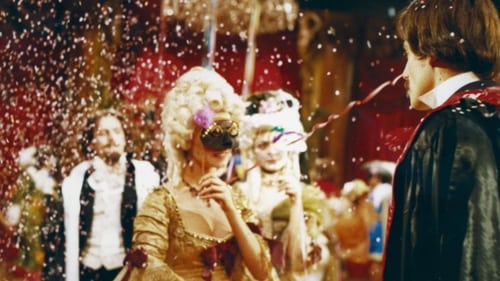
Screenplay
The life of a young man, son of an English officer who lets himself become a prisoner of love resulting in fatalism and disgrace.

Director
The life of a young man, son of an English officer who lets himself become a prisoner of love resulting in fatalism and disgrace.

N°102
Reel 11 of Gérard Courant's on-going Cinematon series.
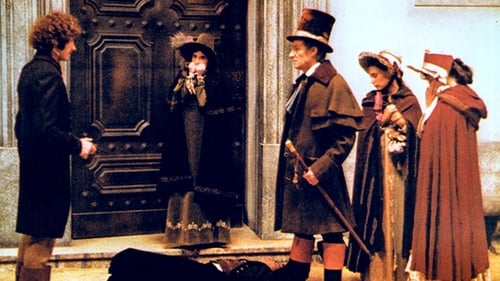
Narrator (voice)
A story about doomed love between two people from different worlds and the impact in their lives.

Screenplay
A story about doomed love between two people from different worlds and the impact in their lives.

Director
A story about doomed love between two people from different worlds and the impact in their lives.
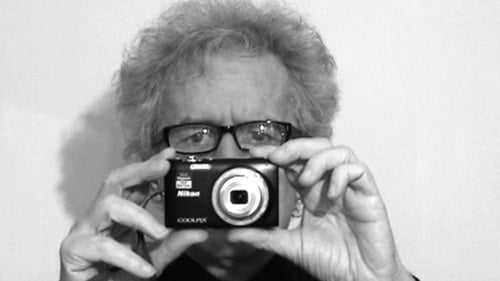
N°102
Синематон» - 201-часовой фильм французского режиссёра Жерара Куранта. Он считается одним из самых длинных фильмов когда-либо выпущенных. Создающийся более 35 лет (с 1978 по 2018), он состоит из серии 3027 беззвучных виньеток, каждая продолжительностью по 3 минуты 25 секунд, в которых показываются различные знаменитости, художники, журналисты и друзья режиссёра, каждый делающий то, что он хочет, за отведённое время. В фильме показаны режиссёры: Барбет Шредер, Нагиса Осима, Фолькер Шлендорф, Кен Лоуч, Юсеф Шахин, Вим Вендерс, Джозеф Лоузи, Жан-Люк Годар, Сэмюэл Фуллер и Терри Гиллиам; гроссмейстер Жоэль Лотье и актёры Роберто Бениньи, Стефан Одран и Жюли Дельпи. Терри Гиллиам показан поедающим купюру в 100 франков. Сэмюэл Фуллер курит сигару. Своим любимым героем фильма Жерар Курант считает семимесячного ребёнка.
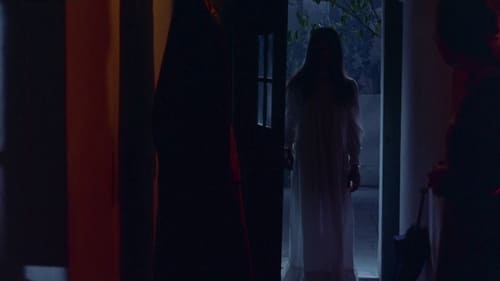
Director
A young girl, Benilde, so protected by her religious family that she seemingly knows nothing about procreation, insists that her mysterious pregnancy is a miracle; however, her distressed bourgeois family decides that Benilde has lost her mind.

Editor
A young girl, Benilde, so protected by her religious family that she seemingly knows nothing about procreation, insists that her mysterious pregnancy is a miracle; however, her distressed bourgeois family decides that Benilde has lost her mind.

Screenplay
A young girl, Benilde, so protected by her religious family that she seemingly knows nothing about procreation, insists that her mysterious pregnancy is a miracle; however, her distressed bourgeois family decides that Benilde has lost her mind.

Editor
This is an intriguing avant-garde look at what motivates the leisurely classes in Portugal, for better or worse, by director Manoel de Oliveira. Set in a spacious country home peopled with a wide-ranging cast of characters, the drama begins as the friends of a widow come to console her on the loss of her husband. But at one point, the widow goes upstairs, encounters her husband, and is faced with his accusations about the past. This event and others provide the means of revealing the petty, self-serving, egocentric, and romantic pursuits of the melange of people in the house. - Eleanor Mannikka, Rovi

Producer
This is an intriguing avant-garde look at what motivates the leisurely classes in Portugal, for better or worse, by director Manoel de Oliveira. Set in a spacious country home peopled with a wide-ranging cast of characters, the drama begins as the friends of a widow come to console her on the loss of her husband. But at one point, the widow goes upstairs, encounters her husband, and is faced with his accusations about the past. This event and others provide the means of revealing the petty, self-serving, egocentric, and romantic pursuits of the melange of people in the house. - Eleanor Mannikka, Rovi

Screenplay
This is an intriguing avant-garde look at what motivates the leisurely classes in Portugal, for better or worse, by director Manoel de Oliveira. Set in a spacious country home peopled with a wide-ranging cast of characters, the drama begins as the friends of a widow come to console her on the loss of her husband. But at one point, the widow goes upstairs, encounters her husband, and is faced with his accusations about the past. This event and others provide the means of revealing the petty, self-serving, egocentric, and romantic pursuits of the melange of people in the house. - Eleanor Mannikka, Rovi

Director
This is an intriguing avant-garde look at what motivates the leisurely classes in Portugal, for better or worse, by director Manoel de Oliveira. Set in a spacious country home peopled with a wide-ranging cast of characters, the drama begins as the friends of a widow come to console her on the loss of her husband. But at one point, the widow goes upstairs, encounters her husband, and is faced with his accusations about the past. This event and others provide the means of revealing the petty, self-serving, egocentric, and romantic pursuits of the melange of people in the house. - Eleanor Mannikka, Rovi

Writer
Documentary by Manoel de Oliveira filmed in 1965 and exhibited in 2008 in the Venice Film Festival.

Director
Documentary by Manoel de Oliveira filmed in 1965 and exhibited in 2008 in the Venice Film Festival.

Sound Designer
The camera shows the vivid paintings by late Júlio Régio, with a narrative by his brother, while guitar tunes underline the mood and rhythm of the cinematography.

Editor
The camera shows the vivid paintings by late Júlio Régio, with a narrative by his brother, while guitar tunes underline the mood and rhythm of the cinematography.

Director of Photography
The camera shows the vivid paintings by late Júlio Régio, with a narrative by his brother, while guitar tunes underline the mood and rhythm of the cinematography.

Producer
The camera shows the vivid paintings by late Júlio Régio, with a narrative by his brother, while guitar tunes underline the mood and rhythm of the cinematography.

Screenplay
The camera shows the vivid paintings by late Júlio Régio, with a narrative by his brother, while guitar tunes underline the mood and rhythm of the cinematography.

Director
The camera shows the vivid paintings by late Júlio Régio, with a narrative by his brother, while guitar tunes underline the mood and rhythm of the cinematography.

Director
A look at the life in the small village Vilaverdinho, in the North of Portugal. Oliveira made this film as a present for a friend. It has only been publicly shown once.

Director of Photography
Two friends decide to go hunting but without guns, so that no accident will happen. As they stroll and talk, one of them falls into a hole in a hidden marshland. His friend runs away, and manages to gather a number of men that were in the vicinity. They form a human chain to pull the victim out, but their affliction mounts, as they have no strategy for doing it, and they can't understand each other.

Sound Designer
Two friends decide to go hunting but without guns, so that no accident will happen. As they stroll and talk, one of them falls into a hole in a hidden marshland. His friend runs away, and manages to gather a number of men that were in the vicinity. They form a human chain to pull the victim out, but their affliction mounts, as they have no strategy for doing it, and they can't understand each other.

Editor
Two friends decide to go hunting but without guns, so that no accident will happen. As they stroll and talk, one of them falls into a hole in a hidden marshland. His friend runs away, and manages to gather a number of men that were in the vicinity. They form a human chain to pull the victim out, but their affliction mounts, as they have no strategy for doing it, and they can't understand each other.

Producer
Two friends decide to go hunting but without guns, so that no accident will happen. As they stroll and talk, one of them falls into a hole in a hidden marshland. His friend runs away, and manages to gather a number of men that were in the vicinity. They form a human chain to pull the victim out, but their affliction mounts, as they have no strategy for doing it, and they can't understand each other.

Writer
Two friends decide to go hunting but without guns, so that no accident will happen. As they stroll and talk, one of them falls into a hole in a hidden marshland. His friend runs away, and manages to gather a number of men that were in the vicinity. They form a human chain to pull the victim out, but their affliction mounts, as they have no strategy for doing it, and they can't understand each other.

Director
Two friends decide to go hunting but without guns, so that no accident will happen. As they stroll and talk, one of them falls into a hole in a hidden marshland. His friend runs away, and manages to gather a number of men that were in the vicinity. They form a human chain to pull the victim out, but their affliction mounts, as they have no strategy for doing it, and they can't understand each other.

Nineteen-year-old Julio heads to Lisbon from the provinces and gets a job as a shoemaker for his uncle Raul. But when he meets Ilda, a confident young housemaid who becomes a regular shop visitor, his working-class values collide with the bourgeois trappings of modern life.

Sound Designer
Local people of Curalha, a small village, keep a tradition of representing the Passion of Jesus, according to a 16th century text.

Editor
Local people of Curalha, a small village, keep a tradition of representing the Passion of Jesus, according to a 16th century text.

Director of Photography
Local people of Curalha, a small village, keep a tradition of representing the Passion of Jesus, according to a 16th century text.

Producer
Local people of Curalha, a small village, keep a tradition of representing the Passion of Jesus, according to a 16th century text.

Screenplay
Local people of Curalha, a small village, keep a tradition of representing the Passion of Jesus, according to a 16th century text.

Director
Local people of Curalha, a small village, keep a tradition of representing the Passion of Jesus, according to a 16th century text.

Sound Designer
Each day, Man must work around the clock to produce and acquire bread: throwing the seeds into earth, helping the breeding of the corn, the corn's recolt, transport to the mills - traditional or industrial ones -, manipulation of the flour into actual bread, transport to a variety of locations and consumers. And then, after the consumption, the cycle restarts.

Editor
Each day, Man must work around the clock to produce and acquire bread: throwing the seeds into earth, helping the breeding of the corn, the corn's recolt, transport to the mills - traditional or industrial ones -, manipulation of the flour into actual bread, transport to a variety of locations and consumers. And then, after the consumption, the cycle restarts.

Director of Photography
Each day, Man must work around the clock to produce and acquire bread: throwing the seeds into earth, helping the breeding of the corn, the corn's recolt, transport to the mills - traditional or industrial ones -, manipulation of the flour into actual bread, transport to a variety of locations and consumers. And then, after the consumption, the cycle restarts.

Producer
Each day, Man must work around the clock to produce and acquire bread: throwing the seeds into earth, helping the breeding of the corn, the corn's recolt, transport to the mills - traditional or industrial ones -, manipulation of the flour into actual bread, transport to a variety of locations and consumers. And then, after the consumption, the cycle restarts.

Screenplay
Each day, Man must work around the clock to produce and acquire bread: throwing the seeds into earth, helping the breeding of the corn, the corn's recolt, transport to the mills - traditional or industrial ones -, manipulation of the flour into actual bread, transport to a variety of locations and consumers. And then, after the consumption, the cycle restarts.

Director
Each day, Man must work around the clock to produce and acquire bread: throwing the seeds into earth, helping the breeding of the corn, the corn's recolt, transport to the mills - traditional or industrial ones -, manipulation of the flour into actual bread, transport to a variety of locations and consumers. And then, after the consumption, the cycle restarts.
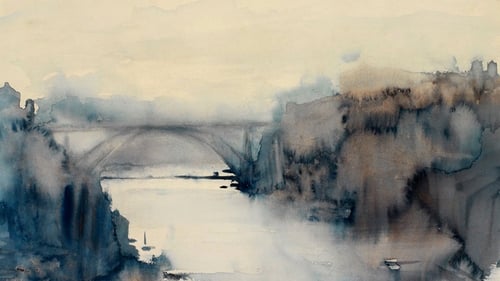
Editor
The painter António Cruz wanders around the city of Porto painting what he sees: old and modern buildings, people arriving and leaving work in the factories, children playing. The impressionist realism of Cruz’s drawings dissolves into Oliveira’s vision of Porto, which at the same time portrays the painter and his work.

Director of Photography
The painter António Cruz wanders around the city of Porto painting what he sees: old and modern buildings, people arriving and leaving work in the factories, children playing. The impressionist realism of Cruz’s drawings dissolves into Oliveira’s vision of Porto, which at the same time portrays the painter and his work.

Producer
The painter António Cruz wanders around the city of Porto painting what he sees: old and modern buildings, people arriving and leaving work in the factories, children playing. The impressionist realism of Cruz’s drawings dissolves into Oliveira’s vision of Porto, which at the same time portrays the painter and his work.

Screenplay
The painter António Cruz wanders around the city of Porto painting what he sees: old and modern buildings, people arriving and leaving work in the factories, children playing. The impressionist realism of Cruz’s drawings dissolves into Oliveira’s vision of Porto, which at the same time portrays the painter and his work.

Director
The painter António Cruz wanders around the city of Porto painting what he sees: old and modern buildings, people arriving and leaving work in the factories, children playing. The impressionist realism of Cruz’s drawings dissolves into Oliveira’s vision of Porto, which at the same time portrays the painter and his work.

Editor
Порту. Двое мальчишек в банде прогульщиков соперничают за любовь девочки, которая больше всего на свете хочет получить в подарок красивую куклу, замеченную в витрине магазина.

Co-Producer
Порту. Двое мальчишек в банде прогульщиков соперничают за любовь девочки, которая больше всего на свете хочет получить в подарок красивую куклу, замеченную в витрине магазина.

Screenplay
Порту. Двое мальчишек в банде прогульщиков соперничают за любовь девочки, которая больше всего на свете хочет получить в подарок красивую куклу, замеченную в витрине магазина.

Director
Порту. Двое мальчишек в банде прогульщиков соперничают за любовь девочки, которая больше всего на свете хочет получить в подарок красивую куклу, замеченную в витрине магазина.

Sound
Short documentary about the town of Famalicão, in the North of Portugal.

Writer
Short documentary about the town of Famalicão, in the North of Portugal.

Director
Short documentary about the town of Famalicão, in the North of Portugal.

Executive Producer
The film exhibited the community and the beach, "how I new and it was shown to me" (Manoel de Oliveira) by the Meneres family, that had a house in Miramar. The film is currently lost.

Editor
The film exhibited the community and the beach, "how I new and it was shown to me" (Manoel de Oliveira) by the Meneres family, that had a house in Miramar. The film is currently lost.

Screenplay
The film exhibited the community and the beach, "how I new and it was shown to me" (Manoel de Oliveira) by the Meneres family, that had a house in Miramar. The film is currently lost.

Director
The film exhibited the community and the beach, "how I new and it was shown to me" (Manoel de Oliveira) by the Meneres family, that had a house in Miramar. The film is currently lost.

Writer
Reflecting the filmmaker's passion for automobiles, who in his youth participated in car races, the film portrays the attempt to manufacture a new model in the Ford factory in the city of Porto.

Director
Reflecting the filmmaker's passion for automobiles, who in his youth participated in car races, the film portrays the attempt to manufacture a new model in the Ford factory in the city of Porto.

Director of Photography
A series of images documenting the floods of the river Tagus. This film has been recovered and made available by the Cinemateca Portuguesa.

Director
A series of images documenting the floods of the river Tagus. This film has been recovered and made available by the Cinemateca Portuguesa.

Carlos
Vasco is a medical student in Lisbon, supported by his rich aunts, whom he had falsely told he had already graduated. In fact, he devotes himself to a bohemian life, preferring the popular fairs and pretty women, especially Alice, a seamstress from the Castelinhos quarter, which rather upsets her ambitious father, tailor Caetano, who is familiar with Vasco's debts. After failing yet another final exam, he is surprised by his aunts' announcement that they will visit him in Lisbon to see his practice.

Screenplay
A look at various statues in the city of Lisbon. This film is incomplete and was distributed against the will of the director.

Director of Photography
A look at various statues in the city of Lisbon. This film is incomplete and was distributed against the will of the director.

Director
A look at various statues in the city of Lisbon. This film is incomplete and was distributed against the will of the director.

Writer
Filmed with the same camera and the film stock remains of Douro, Faina Fluvial, portrays the inauguration of the hydroelectric power plant of Ermal, owned by Manoel de Oliveira's father.

Director
Filmed with the same camera and the film stock remains of Douro, Faina Fluvial, portrays the inauguration of the hydroelectric power plant of Ermal, owned by Manoel de Oliveira's father.

Editor
Short silent documentary from 1931 about those working on the River Douro in Oporto.

Writer
Short silent documentary from 1931 about those working on the River Douro in Oporto.

Director
Short silent documentary from 1931 about those working on the River Douro in Oporto.

Aninhas (Aida Lupo), a paralyzed girl, asks for a miracle from the saint of her devotion, Our Lady of Lourdes, at the chapel of Penha (Guimarães), but her prayer is not heard - She turns her devotion to the Blessed Virgin directly, and joins the multitude that goes on a pilgrimage to the village where, ten years before, the Virgin Mary is said to have appeared to three child sheepherders.

Director
Manoel de Oliveira's homage to Vila do Conde, with a poem by José Régio. It was shot in 1965, but only completed in 2008.
